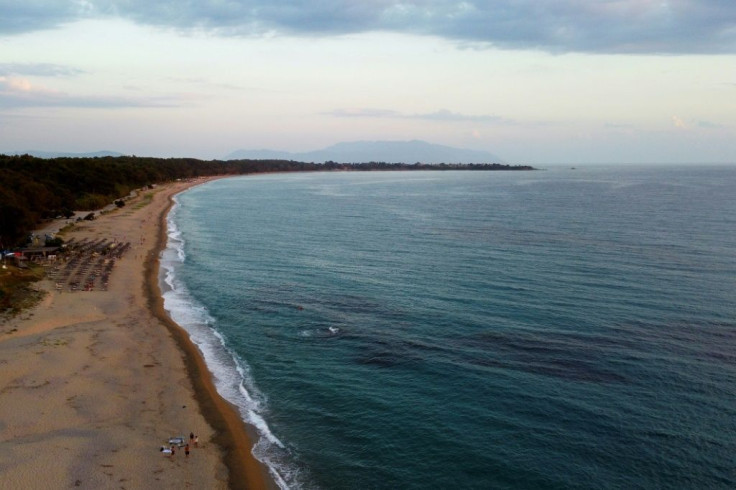'Monster' Sea Creature Washes Up On Beach, Police Share Photo
Police personnel patrolling the beaches of a British town bumped into a massive sea creature that washed up on the shore Monday. The officers were taken aback by its size.
The creature – identified as a conger eel – was spotted by Ottery St. Mary Police officers. The police department posted a photo of the enormous eel on Twitter.
"Me and my crewmate were about to break out doing the conga, with this rather impressive conga washed up on Exmouth beach this morning," a spokesperson wrote.
Me and my crewmate were about to break out doing the conga,with this rather impressive conga washed up on Exmouth beach this morning #monster #trailer 🐟 pic.twitter.com/qJtv903JMN
— Ottery St Mary Police (@OtteryPolice) January 4, 2021
Officers described the eel as a "monster" due to its huge size. The exact length of the eel was not revealed.
According to Britannica, Conger eels are scaleless with large heads, large gill slits, wide mouths and strong teeth. Their color varies from grayish to blackish. They can grow up to 9 feet and are usually found along the European and North American Atlantic coasts. Usually, conger eels are bottom-dwellers and live at depths of up to 2,900 feet. They feed mostly at night on crustaceans and small fish.
Mysterious and bizarre-looking creatures often wash up on shores across the world. Sometimes their size and shape baffle beachgoers and experts.
Last month, a "furry" creature washed up on the shores of an Edinburgh beach in Scotland. The photo of the creature was shared online by a Facebook user, asking people to help him identify the creature.
"We found a couple of these strange creatures washed up at Granton beach. Out of curiosity rather than culinary interest (we put them back in the sea) - Does anyone know what they are?" the person wrote.
The sea creature was later identified as a sea mouse, a type of marine worm found in the Atlantic Ocean and the Mediterranean Sea.
In another incident in November, a tongue-shaped sea creature washed up on a beach in Australia. The creature was spotted by a woman who was staying at a resort on Queensland's Moreton Island. The images taken by the woman were shared with experts at the Queensland Museum, who confirmed it was an Obese Sea Pen (Cavernularia obesa).






















